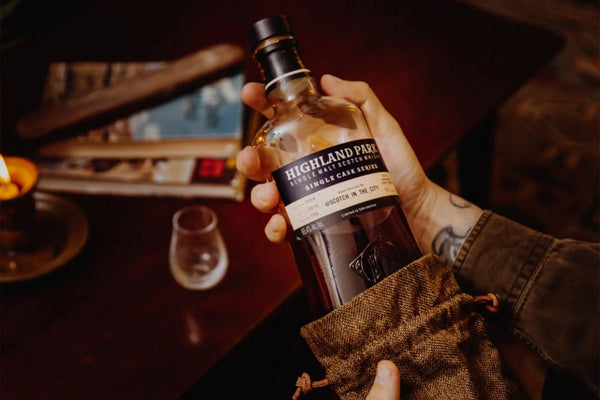Explainer: Single cask Scotch whisky
Limited by their nature, single cask Scotch whisky releases are often highly sought after and can therefore command a higher price tag, which in turn creates a perception of greater quality. We’ll weigh up, over three simple questions, whether this is marketing genius or merit where it’s due.
1. What does “single cask Scotch whisky" mean?
While not specifically defined in the Scotch Whisky Regulations (2009 UK legislation outlining legal requirements for Scotch), the term falls under the Consumer Rights Act (2015 UK legislation outlining general consumer protection) which states that any food description must be accurate, clear and not misleading.
Guidance from the Scotch Whisky Association (SWA) is as follows:
The term “single cask” should only be used when the contents of the bottle have spent the entire maturation period in a single cask.
The term “single cask” should not be used where there has been a vatting of a number of casks, even if the vatted product has then been refilled into casks, for example for “finishing”.
The Association believes it would be acceptable for a “single cask” whisky to have been re-racked into another similar cask in the event of, for example, the first cask leaking. However, it would be misleading to decant a cask of whisky into a different type of cask for finishing and then to describe the finished product as “single cask”.
This guidance reflects long standing industry practice. A Scotch that is labelled “single cask” is simply a whisky matured in one cask only and then bottled. An attractive proposition for marketers to pitch a one-off snapshot of a distillery’s output with the ultimate when-it’s-gone-it’s-gone urgency.
Each label on a single cask Scotch whisky will usually contain the cask number, the number of bottles in the run and sometimes even the number of the individual bottle. A cask can yield between 150 and 600 75cl bottles, depending on the size of the cask and the age of the whisky.
2. What is the difference between single malt and single cask whisky?
Single malt Scotch whisky is one of the five categories of whisky as defined in the Scotch Whisky Regulations. Made from only three ingredients (malted barley, water and yeast), it must be the product of only one malt distillery using pot still distillation.
A single cask Scotch whisky takes this a step further and is essentially the new make spirit from a single distillery that has been matured in a single cask before bottling.
3. Is single cask Scotch whisky better?
As one of our whisky lecturers, Dr Gordon Steele, suggests: “If you look at the history of Scotch whisky, there's this ongoing suspicion that “the best” whisky is being kept back somehow by the companies. Really, the opposite is true! They would love to sell as much whisky as possible.”
The innovation simply continues. Be it from malt to single malt to single cask and whatever else… new products will continue to appear on the market. All Scotch whisky is good whisky and due to personal taste, you will like some more than others.
As always, when it comes to Scotch whisky, you’d do well to keep an open mind. Being overly prescriptive about what you perceive to be the parameters of quality will likely see you miss out on some great products. Knowledge of the whisky you are drinking can boost your appreciation but only you can decide what you like to drink and what you don’t.



